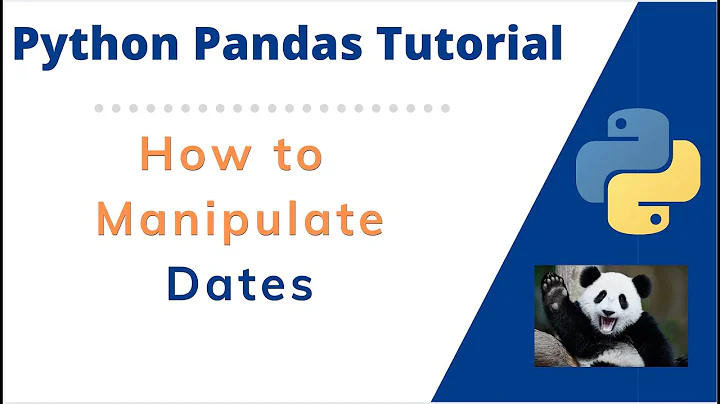Get year,month and day from python variable
10,201
Solution 1
you were close
import datetime
from datetime import date, timedelta
yesterday = date.today() - timedelta(1)
print (yesterday)
year = yesterday.year
month = yesterday.month
day=yesterday.day
print (year)
print (month)
print (day)
result is
2019-03-10
2019
3
10
Solution 2
You can also simplify your import statements like so:
from datetime import datetime, timedelta
yesterday = datetime.today() - timedelta(1)
print(yesterday)
year = yesterday.year
month = yesterday.month
day = yesterday.day
print(year)
print(month)
print(day)
You will get the output:
2019-03-10 21:19:36.695577
2019
3
10
Solution 3
You can use strftime method
A simple example:
>>> from datetime import datetime
>>> now = datetime.utcnow()
>>> year_month_day_format = '%Y-%m-%d'
>>> now.strftime(year_month_day_format)
'2020-11-06'
>>> hour_minute_format = '%H:%M'
>>> now.strftime(hour_minute_format)
'22:54'
Hopping, it will help someones
Related videos on Youtube
Author by
mcadamsjustin
Updated on June 04, 2022Comments
-
 mcadamsjustin almost 2 years
mcadamsjustin almost 2 yearsI'd like to get the break of a variable by year, month and day. Here's what I got:
import datetime from datetime import date, timedelta yesterday = date.today() - timedelta(1) print (yesterday) year = datetime.date.yesterday.year month = datetime.date.yesterday.month day=datetime.date.yesterday.day print (year) print (month) print (day)I'm getting an error that datetime.date has no attribute. I'm a total noob at python and I'm stuck, any help is appreciated
-
 mcadamsjustin about 5 yearsjust a note, I know I don't need the 'print (yesterday)' line, it was just testing for me
mcadamsjustin about 5 yearsjust a note, I know I don't need the 'print (yesterday)' line, it was just testing for me
-
-
 mcadamsjustin about 5 yearsthis works, Baris just beat you, thanks for the simplifying tip
mcadamsjustin about 5 yearsthis works, Baris just beat you, thanks for the simplifying tip -
 Sébastien Lavoie about 5 yearsThat's how it is ;)... I will point out however that
Sébastien Lavoie about 5 yearsThat's how it is ;)... I will point out however thatyesterdaywill also contain the time as shown in the output I added. From there, you can also access other attributes such asyesterday.hour,yesterday.microsecond,yesterday.minute,yesterday.secondor even split individual fractions of time withyesterday.time()and get the digit that corresponds to the day of the week withyesterday.weekday(). -
 Life is complex about 5 yearsyou could also strip the time information using -- yesterday.strftime('%d-%m-%Y')
Life is complex about 5 yearsyou could also strip the time information using -- yesterday.strftime('%d-%m-%Y')




